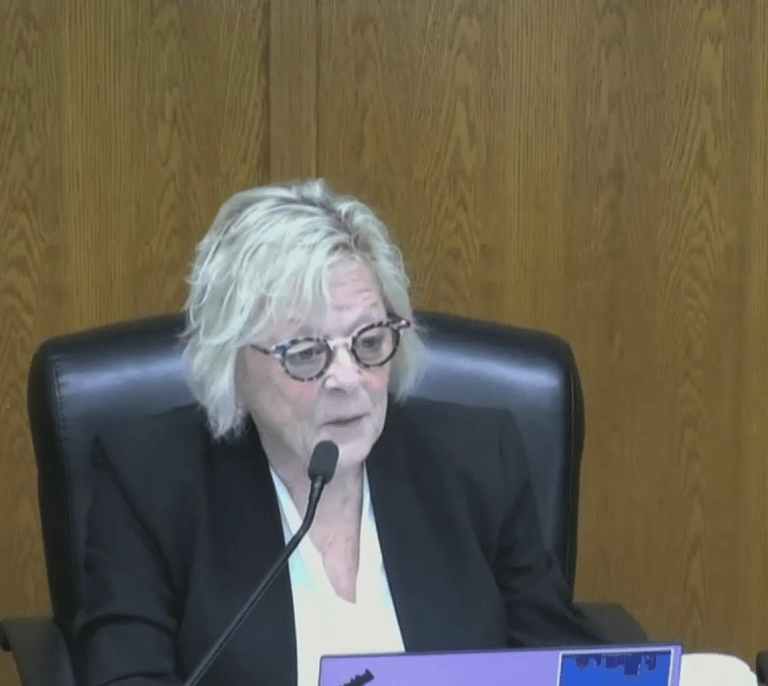 State Senator Claire Wilson (TVW Screenshot)
State Senator Claire Wilson (TVW Screenshot)
Andrew Engelson
In 2023, the Washington State Legislature passed a bill that would eliminate the requirement that recipients of the state’s Elderly, Blind, and Disabled (ABD) Cash Assistance Program must repay benefits if they become eligible for federal disability benefits. ABD benefits are provided to some of the state’s poorest residents, and the new law attempted to improve repayment requirements.
However, PubliCola readers recently informed us that the state Department of Social and Health Services (DSHS) is still requiring recipients to repay ABD benefits. Sen. Claire Wilson (D-Auburn, 30th District), chair of the Senate Human Resources Committee, amended the bill near the end of the legislative session to change the effective date from October 2023 to October 2025.
ABD recipients are some of the most vulnerable people in the state: according to the most recent data, approximately 30% of the 31,000 ABD recipients are currently homeless and 55% have a mental health-related disability.
Senate Democratic spokesman Aaron Wasser said Wilson and the Democratic caucus agreed to the change because it “reduces the fiscal impact to the budget without compromising fundamental policy.”
ABD serves two groups: people who are temporarily disabled and those who need a “bridge” while they wait for approval of their federal SSI disability benefits, a process that takes an average of seven months.
Sarah Payne, an Everett resident who contacted Publicola, was helping a friend apply for ABD when she noticed the repayment requirement in a letter her friend received from DSHS called a “Temporary Assistance Reimbursement Approval Form.”
PubliCola is entirely supported by readers like you.
To become a one-time or monthly contributor, click below.
Support PubliCola
“It’s a letter written in the most complicated, Kafkaesque, bureaucratic language you could ever read,” Payne said. “I had to read it three times to understand what it said.”
Payne’s friend, who declined to be interviewed due to privacy concerns, has heart disease and said she has been waiting more than a year and a half for federal benefits. Payne herself recently became disabled (she also has heart disease) and is reconsidering applying for ABD because of the repayment obligations.
Bryce Montgomery, interim director of DSHS’s Community Services Division, which administers ABD benefits, said the department welcomes the new law, but the department does not have the funds to eliminate the debt obligations until October 2025. “We think this law, if done as written, will help and will be an effort to reduce poverty in a meaningful way,” Montgomery said.
The reason DSHS has historically required people to repay their ABD benefits is to compensate SSI recipients for the waiting period before they became eligible for benefits, but people who received these lump sum payments often need the money to pay off debts or unpaid rent owed from when they were receiving ABD benefits, which are typically much lower than SSI.
The maximum monthly benefit for a single person in the ABD program is $450, less than half the maximum SSI benefit of $943 per person (and a small fraction of the $1,900 rent for the average apartment in the Puget Sound region).
The ABD program has historically been underfunded, and benefits were cut to $197 per month in 2011. DSHS raised benefits to their current level in 2022. “For quite a long time, the benefits were very small, but they’ve improved a little bit,” Montgomery said, “and they’re still not as high as a typical SSI grant.”
Payne said she was disappointed that Congress kept the repayment requirement in place for another two years. “It’s a small program, but it means a lot to the people who use it,” she said. “It feels like they’re nibbling away at your carcass. There are people who are counting on that lump sum. After waiting so long, you’re going to be in debt to a lot of people.”
The state estimates eliminating the repayment requirement would cost $51 million between 2025 and 2027 and $61 million between 2027 and 2029. “Delaying this to the next biennium allows the state time to plan and budget for the financial impacts and also allows DSHS time to develop a plan for successful implementation,” said Wasser, a state Democrat.
Payne said the requirement puts a strain on people like her and her friends who are already financially unstable because of their disabilities.
“I just can’t understand the mentality of taking from those who are most in need,” she said.
Share this PubliCola post
like this:
Like Loading…

